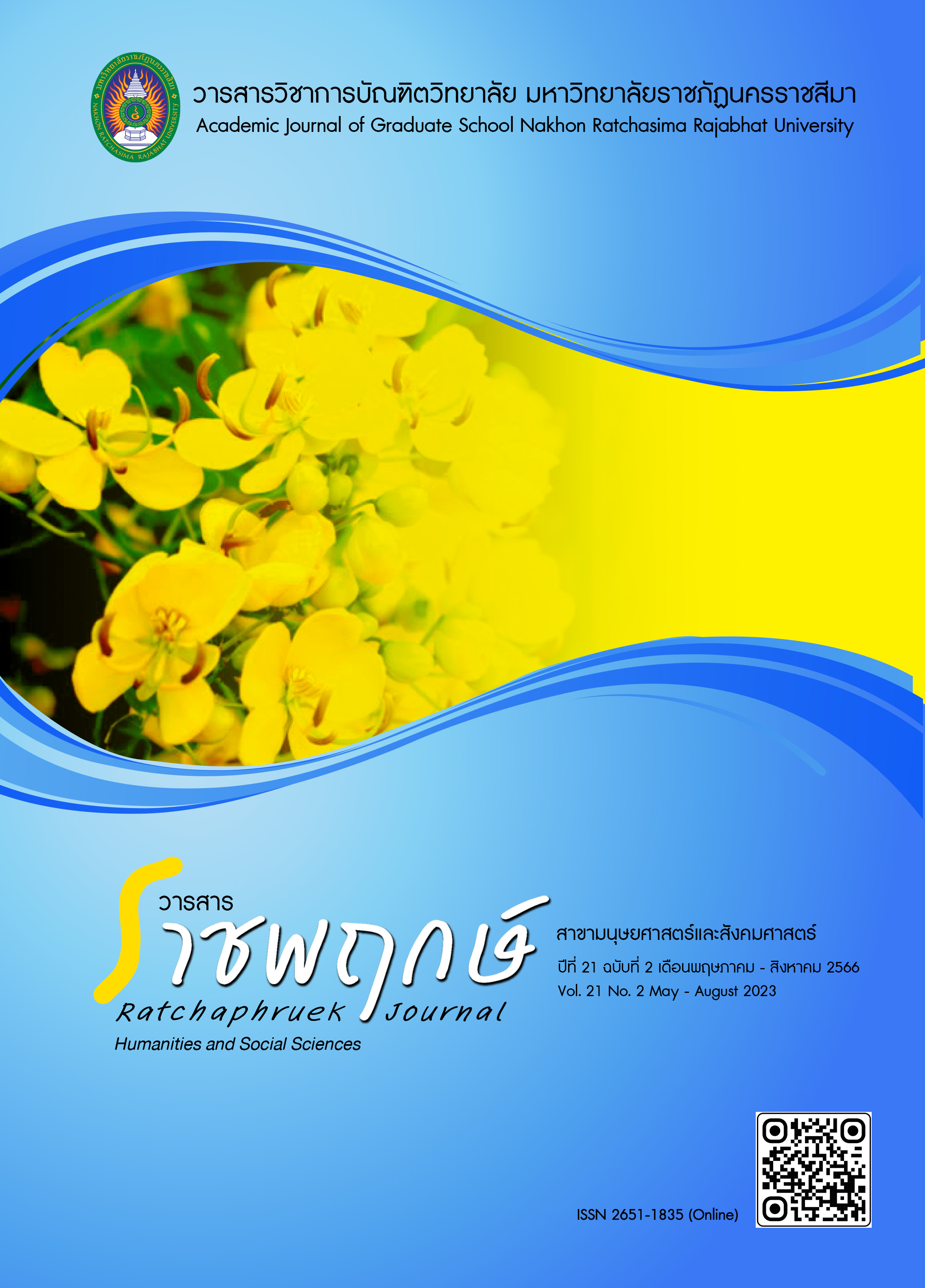The Proposed Policy of Elderly Schools Management for Local Government Organizations in Thailand
Main Article Content
Abstract
This research is a mixed methods which aimed to propose the Elderly School management of the local government organization in Thailand. The objectives were: 1) To study Elderly School Management of Local Government Organizations in Thailand; 2) To study the potential development of the elderly from the school management; and 3) To propose the Proposed Policy for the Elderly School Management. Three phases of research were conducted: The informants research Phase 1 was the interview from 20 Administrators and Board from the Elderly Schools which there is good management from the school project of Local Government Organizations in Thailand; Phase 2 using questionnaire for the 276 Elderly School Administrators and Board from a model elderly school in the local government organization; and Phase 3 using the focus group of 11 administrators and executive committee of Elderly School of Award-winning Local Government Organizations and Educational Administration Specialist. Data were analyzed by frequency, percentage, mean, standard deviation and content analysis.
The results of this research indicated that 1) The management is based on the POSDCoRB theory. The concept of school management for the elderly will be 5 things, and contains components based on the concept of Active Aging. 2) The overall development of the potential of the elderly by school management was at a high level, and 3) Policy proposals include 8 items 1) planning 2) Organizing 3) Staffing 4) Directing 5) Coordinating 6) Reporting 7) Budgeting 8) Management Elderly School concept of school management for the elderly 5 things, and contains components based on the concept of Active Aging.
Article Details

This work is licensed under a Creative Commons Attribution-NonCommercial-NoDerivatives 4.0 International License.
References
กรมกิจการผู้สูงอายุ. (2559). คู่มือโรงเรียนผู้สูงอายุ. สืบค้นเมื่อ 21 มิถุนายน 2563, จาก http:// www.dop.go.th/th/know/5/24
กรมกิจการผู้สูงอายุ. (2566). สถิติผู้สูงอายุของประเทศไทย ณ วันที่ 31 ธันวาคม 2565. สืบค้นเมื่อ 7 มีนาคม 2566, จาก https://www.dop.go.th/th/know/side/1/1/1766
โกสินล์ ชี้ทางดี. (2562). แนวทางการพัฒนาการดำเนินงานโรงเรียนผู้สูงอายุในจังหวัดลพบุรี. วารสารวิชาการมหาวิทยาลัยปทุมธานี, 11(2), น. 325-336.
ฐาณิศรา กาบบัวศรี. (2562). เทคนิคและกระบวนการ POSDCoRB Process and Technique of POSDCoRB. วารสารสมาคมพัฒนาวิชาชีพการบริหารการศึกษาแห่งประเทศไทย, 1(3), น. 18-20.
นภเรณู สัจจรักษ์ธีระฐิติ และพจนา พิชิตปัจจา. (2557). รายงานฉบับสมบูรณ์โครงการวิจัยทิศทางและการพัฒนานโยบายการเรียนรู้ตลอดชีวิตของผู้สูงอายุในประเทศไทย. กรุงเทพฯ: สำนักงานคณะกรรมการวิจัยแห่งชาติ (วช.) และสำนักงานกองทุนสนับสนุนการวิจัย (สกว.)
บุญชม ศรีสะอาด. (2553). การวิจัยเบื้องต้น (พิมพ์ครั้งที่ 7). กรุงเทพฯ: สุวีริยาสาส์น.
ยุรธร จีนา. (2561). โรงเรียนเปี่ยมสุข: รูปแบบการจัดการองค์กรชุมชนเพื่อรองรับสังคมผู้สูงวัยในศตวรรษที่ 21 จังหวัดเชียงใหม่. วารสารสถาบันวิจัยและพัฒนา มหาวิทยาลัยราชภัฏมหาสารคาม, 5(1), น. 171-184.
เวหา เกษมสุข. (2562). แนวทางส่งเสริมการเรียนรู้ตลอดชีวิตของโรงเรียนผู้สูงอายุ (วิทยานิพนธ์ดุษฎีบัณฑิต, มหาวิทยาลัยศิลปากร).
ศศิพัฒน์ ยอดเพชร, ภาวนา พัฒนศรี และธนิกานต์ ศักดา. (2560). โครงการการถอดบทเรียนตัวอย่างที่ดีของโรงเรียนและชมรมผู้สูงอายุที่มีกิจกรรมถ่ายทอดความรู้. กรุงเทพฯ: เจพริ้นท์.
อาชัญญา รัตนอุบล, วีระเทพ ปทุมเจริญวัฒนา, วรรัตน์ ปทุมเจริญวัฒนา, ปาน กิมปี และระวี สัจจโสภณ. (2554). รายงานฉบับสมบูรณ์การศึกษาและการเรียนรู้ตลอดชีวิตของผู้สูงอายุไทย. กรุงเทพฯ: มูลนิธิสถาบันวิจัยและพัฒนาผู้สูงอายุไทย (มส.ผส.) และสถาบันวิจัยระบบสาธารณสุข.
Krejcie, R. V. & Morgan, D. W. (1970). Determining Sample Size for Research Activities. Educational and Psychological Measurement, 3(3), pp. 607-610.
World Health Organization. (2002). Active Aging A Policy Framework.In Noncommunicable Disease Prevention and Health Promotion Department (Ed.)., the Second United Nations World Assembly on Ageing, Madrid, Spain, April 2002. (pp. 45-53). Geneva, Switzerland: Health Canada UNFPA.


